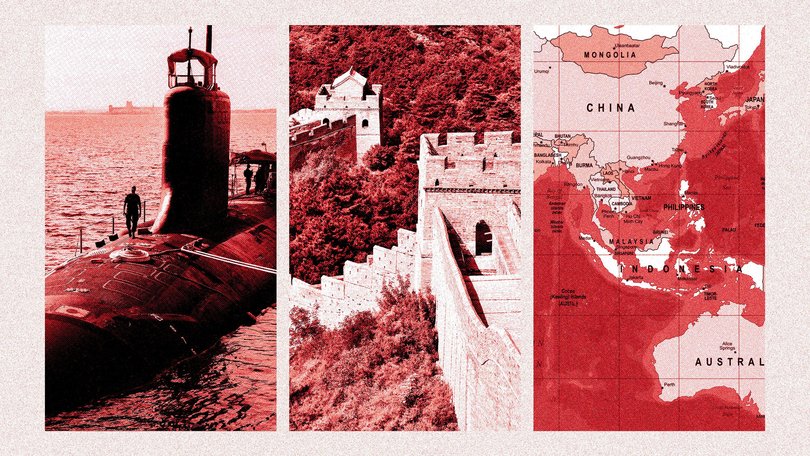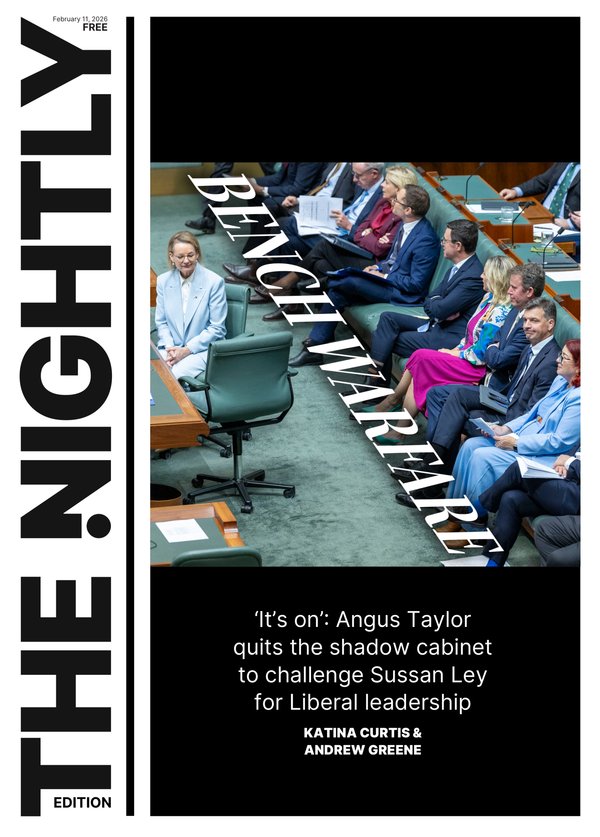THE ECONOMIST: Australia has no excuse — US allies must build a greater wall of defence against China threat
THE ECONOMIST: Australia’s own white papers warn of the seriousness of the threat but its defence budget, at just under 2 per cent of GDP, tells a different story.

Unlike in Europe or the Middle East, there are no big interstate wars taking place in Asia right now. But the threat from China’s military build-up is obvious.
Across the Pacific, American airmen are busy restoring and upgrading Second World War airbases so that they can be used by their forces today. This is part of a policy to deter China that began under President Joe Biden.
Now, President Donald Trump is demanding that America’s Asian friends contribute far more to this task.
Sign up to The Nightly's newsletters.
Get the first look at the digital newspaper, curated daily stories and breaking headlines delivered to your inbox.
By continuing you agree to our Terms and Privacy Policy.The administration wants them to spend more on defence and do more to deter an attack on Taiwan. Yet Mr Trump has sown doubts about America’s commitment to its friends, most spectacularly with Ukraine and NATO, but also with India.
What should America’s Asian partners do?
Europe could plausibly defend itself without copious American help against Russia, but America’s Asian friends would have little chance of deterring China if they were abandoned by Uncle Sam, unless they resorted to nuclear weapons. China’s relative advantage is larger, the geography is daunting and there is no Asian alliance comparable to NATO.
Yet, fortunately, the Trump administration’s commitment to the Pacific is deeper than to Europe. Its Asian partners should build on that.
A lack of cash is a problem. Mr Trump’s Big Beautiful Bill, passed last month, will provide an injection of funds for America’s armed forces. But his budget request for the next fiscal year is flat, implying a cut after inflation.
Congress needs to spend more if the Pentagon is to keep up with technological change and have enough ships, airfields, troops and munitions to counter China. Among America’s five main security partners in the region — Australia, Japan, the Philippines, South Korea and Taiwan — average annual defence spending is a threadbare 1.8 per cent of GDP.
Mr Trump is right to ask them to spend 3.5 per cent on defence.
Australia, South Korea and Taiwan have low public debt compared with other rich countries, and could afford to do more. Australia’s Labor government, for example, has no excuse. Its own white papers warn of the seriousness of the threat from China, but its defence budget, at just under 2 per cent of GDP, tells a different story.
It should put off planned tax cuts and new social programmes or use debt financing to commit to meeting the new target.
In Japan, tough decisions loom. A minority Liberal Democratic Party government is under pressure to offer tax cuts, not a jump in defence spending. With high debt, borrowing to pay for defence is harder.
Across the region the Pentagon should be careful about these conversations, however. Pushing too hard for unpopular policies could create a backlash among voters.
Even as they raise spending, America’s Asian partners should do more together, not least by investing more in the region’s defence-industrial base. This would helpfully place arms factories closer to where weapons might be needed. It would also create a modest hedge against American abandonment.
Australia’s recent announcement that it would buy frigates from Japan is a start. By lifting their own spending and beefing up their industrial bases, they can protect themselves, show America that they are not freeloading and build confidence that China can be deterred in the Pacific.
Originally published as America and its Asian allies need to spend more to deter China
